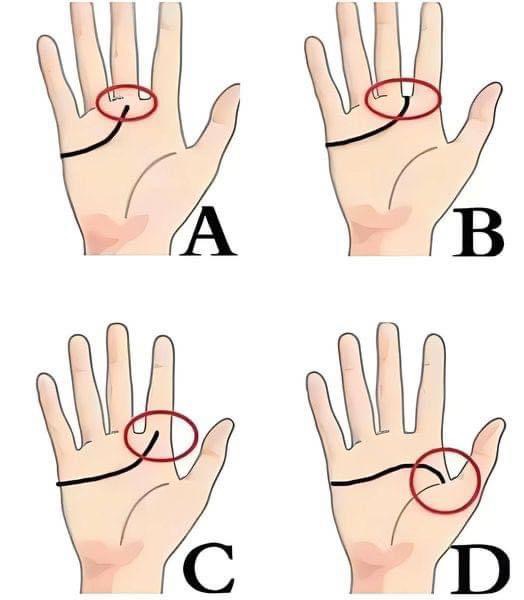In today’s world, where understanding yourself and others is crucial for both personal and professional success, the Myers-Briggs Type Indicator (MBTI) has become a widely used tool. Developed by Katharine Cook Briggs and her daughter Isabel Briggs Myers, the MBTI is designed to help individuals discover which of the 16 unique personality types they belong to. This knowledge can enhance self-awareness, improve relationships, and even guide career choices.

What Exactly is the MBTI?
The MBTI is based on the psychological theories of Carl Jung and focuses on how people perceive the world, process information, and make decisions. The test categorizes individuals into one of 16 personality types based on four fundamental dichotomies:
- Extraversion (E) vs. Introversion (I): This dimension highlights where you draw your energy from. Extraverts feel energized through social interactions and being around others, while introverts recharge through solitude and time spent alone.
- Sensing (S) vs. Intuition (N): This pair focuses on how you gather information. People who lean towards sensing rely on concrete facts and details, whereas those who favor intuition are more interested in patterns, concepts, and possibilities.
- Thinking (T) vs. Feeling (F): This dichotomy explains how you make decisions. Thinkers prioritize logic, objective analysis, and consistency, while feelers consider emotions, values, and the impact their decisions have on others.
- Judging (J) vs. Perceiving (P): This final pair explores your approach to structure and organization. Judgers prefer a planned, organized lifestyle, while perceivers are more flexible, adaptable, and open to spontaneity.
By answering a set of questions, the MBTI identifies your preferences in each of these four areas, resulting in a four-letter personality type (such as INFP or ESTJ).
The 16 MBTI Personality Types: An Overview
Each MBTI personality type has its own unique traits and characteristics. Here’s a quick rundown of what each type represents:
- ISTJ (The Inspector): Practical, detail-oriented, and dependable, they value tradition and order.
- ISFJ (The Protector): Warm, caring, and highly dedicated, they always seek to help those they care about.
- INFJ (The Advocate): Idealistic, principled, and driven by their values, they often seek to make a difference.
- INTJ (The Architect): Strategic thinkers who are highly independent, with a knack for planning and foresight.
- ISTP (The Virtuoso): Hands-on, adventurous, and practical, they excel at using tools and exploring how things work.
- ISFP (The Adventurer): Creative, open-minded, and charming, they are always ready to experience something new.
- INFP (The Mediator): Compassionate, imaginative, and driven by their values, they focus on helping others.
- INTP (The Logician): Analytical, innovative, and always questioning, they have an insatiable thirst for knowledge.
- ESTP (The Entrepreneur): Energetic, perceptive, and adaptable, they thrive on living life on the edge.
- ESFP (The Entertainer): Fun-loving, outgoing, and enthusiastic, they love being the center of attention.
- ENFP (The Campaigner): Creative, sociable, and always optimistic, they find joy in connecting with others.
- ENTP (The Debater): Intellectual, quick-witted, and curious, they enjoy exploring new ideas and debating.
- ESTJ (The Executive): Organized, efficient, and focused on results, they are natural leaders.
- ESFJ (The Consul): Social, empathetic, and helpful, they are beloved by their communities.
- ENFJ (The Protagonist): Inspiring, charismatic, and supportive, they excel in motivating others.
- ENTJ (The Commander): Bold, confident, and strategic, they are driven to lead and achieve their goals.
Why Should You Take the MBTI Test?
The MBTI offers a range of benefits that can enhance both your personal life and career:
- Self-Awareness: Discovering your personality type can help you understand your strengths, weaknesses, and preferences. Knowing your type can provide clarity about why you approach situations the way you do.
- Improved Relationships: Understanding the MBTI types of those around you can improve communication, resolve conflicts, and deepen your relationships. Recognizing how others perceive and process information helps foster empathy and better connections.
- Career Guidance: The MBTI can also be a valuable tool in identifying careers that align with your natural tendencies. For instance, INTJs may thrive in analytical fields, while ESFPs excel in social, dynamic environments.
- Personal Growth: By understanding your natural inclinations, you can work on areas that may need improvement and capitalize on your strengths. This insight is particularly helpful for personal development and setting realistic goals.
How to Take the MBTI Test
The MBTI assessment is available on various platforms, both as free and paid versions. While the official test tends to be more comprehensive and accurate, free versions can still offer useful insights into your personality type.
The test generally involves answering a series of questions about your behaviors, preferences, and reactions in different scenarios. It usually takes around 15 to 30 minutes to complete. Once you’re done, you’ll receive a four-letter code that represents your personality type, along with a detailed description of your traits.
Conclusion: A Powerful Tool for Self-Discovery
The MBTI personality test is more than just a fun quiz; it’s a tool for unlocking a deeper understanding of yourself and those around you. By discovering your MBTI type, you gain insights that can improve your relationships, guide your career choices, and support your personal growth journey.
Whether you’re looking to enhance your self-awareness, build stronger connections, or simply satisfy your curiosity, the MBTI can be a valuable resource. Take the test today and find out where you fit within the 16 personality types. You might just discover something new about yourself that can help you lead a more fulfilling and balanced life.
So, are you an outgoing ENFP or a thoughtful INTJ? Whatever your type, embracing it can set you on a path to greater self-awareness and growth.





